Overview
The Neurocritical Care Fellowship is an ACGME-accredited and United Council of Neurological Subspecialties (UCNS) approved program. Fellows are encouraged to work with the faculty in tailoring their fellowship experience to the specific needs of their career path. At the conclusion of the program, our fellows are well prepared to sit for the ABPN Neurocritical Care Board certification examination, and well prepared for clinical excellence as attendings in neurointensive care.
Fellows gain experience in medical, cardiac, and surgical ICU training as well as advanced training in neurotrauma and neurocritical care. Fellows learn and master airway management, central line placement, arterial lines, PA catheters, ventilator management, evaluation and treatment of sepsis and other infectious disease conditions, cardiac conditions including heart failure and myocardial infarction, and other multi-organ failure scenarios. Fellows also master skill sets in pre-operative and post-operative management of neurosurgical and endovascular with a focus on neurotrauma, stroke and subarachnoid hemorrhage. Fellows obtain extensive experience in the management of acute ischemic stroke with intravenous thrombolytics and endovascular methods.
The Cleveland Clinic Neurocritical Care Fellowship Program is one of the longest running and most comprehensive programs in the United States, providing experience that contributes to leadership in the field. Cleveland Clinic Neuro Critical Care program is both ACGME and UCNS accredited. Many alumni are now in leadership positions across the country.
Program Details
Curriculum
Our fellowship offers trainees:
- Comprehensive clinical training – Core clinical training is completed in neurocritical care in the Neuro Intensive Care Unit (NICU) and general critical care training in the Surgery ICU, Medical ICU, Cardiac Care Unit as well as Trauma.
- Formal procedural training – Provided in a one-on-one, hands-on environment, procedural training includes:
- Bedside ultrasound.
- Advanced airway management.
- Bronchoscopy.
- TCD ultrasound.
- Critical care echo.
- Critical care EEG.
- Central venous and arterial catheters.
- Thoracentesis.
- Swan Ganz catheter.
- Paracentesis.
- Rich research opportunities – With dedicated weekly research time and ample elective time, fellows complete clinical, epidemiologic, informatics or laboratory-based research.
- Extensive didactic schedule – Extensive experience in noninvasive and invasive monitoring techniques, provided through critical care rotations. Leadership in daily discussions of syllabi materials and weekly NICU school discussions. Bi-monthly journal clubs, neuroscience grand rounds and research seminars provide collegial venues for discussion and debate within the field of neurocritical care.
Rotations
Neurocritical care fellows rotate in two week blocks each month. Each fellow’s schedule is set up one week of day in the NICU and one weeknight float, with in-between elective/research/ICU rotation. Fellows are expected to work 6:30 a.m. – 6:30 p.m. on daytime in the NICU and 6:30 p.m. – 6:30 a.m. for night float rotation.
First Year Fellow
- 6 months in the NICU.
- 2 months in affiliated intensive care unit training – SICU, MICU, CCU, CTICU and Trauma ICU (the amount of time spent in each depends on the fellow’s background and prior exposure).
- 1 month on vascular neurology service.
- 1 month on neuroanesthesia and airway management service.
- 1 month in research.
- 1 month in elective.
Second Year Fellow
- 6 months in the NICU.
- 4 months in elective.
- 2 months in research.
Elective Rotations
- May be personalized for each fellow.
- Previous electives have included critical care EEG, echo lab (training alongside cardiology fellows), transcranial doppler ultrasound, neuro-infectious disease and nephrology.
Weekly Conferences
- Fellow Board Review – Thursday 12 p.m. – 1 p.m. , first and third Thursdays of each month (alternates between neurology and general critical care).
- Stroke Conference – Thursday 7 a.m. – 8 a.m. (case discussion among vascular neurology, neurosurgery, and neuroradiology).
- Neuro ICU Conference – Thursday 1 p.m. – 2 p.m.
- Neurology Grand Rounds – Monday 8 a.m. – 9 a.m.
Call
Fellows have a schedule of on-call responsibilities that is shared with a team of including an advanced practice provider and resident. The overnight on-call fellow is responsible for handling outside hospital phone calls and admissions as well as emergencies related to NICU patients. The fellow serves as first contact for the transfer center and directs patient placement along with proving to provide acute neuro critical care management. They coordinate with the neurosurgical and interventional neurology team on neurosurgical and endovascular intervention evaluations.
Clinical Facilities
Cleveland Clinic Neurological Institute annually treats the largest combined volume of brain tumor, spinal cord injury, aneurysm, and arteriovenous malformation cases in Northeast Ohio. Patients are treated and fellows are trained in three neuro ICUs, including:
- Level I 10-bed unit on the 2nd floor of the H building.
- Level I 14-bed unit on the 2nd floor of the G building.
- Level II 10-bed Neuroscience ICU at Cleveland Clinic Akron General.
Cleveland Clinic Imaging Institute supports NICU patients with:
- 5 and 3.0 Tesla MRI units.
- Spiral CT.
- Portable CT scanner for the ICU.
- Linear accelerator.
- Latest generation Gamma Knife.
The Endovascular Neuroradiology Program operates out of a state-of-the-art neuroangiography suite and the intraoperative hybrid suite. The hybrid suite enables the endovascular neurosurgeons to diagnose and treat complex neurovascular disease in the operating room, endovascularly or surgically, without ever leaving the suite. Cleveland Clinic’s Cerebrovascular Center team serves multiple hospitals in the greater Cleveland area including state-of-the-art neurotrauma center at Cleveland Clinic Akron General with a Level I Trauma Center.
Fellows also receive extensive training in:
- Advanced intracranial monitoring including brain tissue oxygenation.
- Arterial pressure monitoring.
- Bronchoscopy.
- Central venous pressure monitoring, PA catheter.
- Comprehensive ultrasonography for volume status and cardiopulmonary assessment, and vascular access.
- Continuous and quantitative video EEG 24/7.
- Direct and video laryngoscopy and adjunctive airway management tools.
- EMG.
- Evoked potential assessment.
- Intracranial pressure monitoring.
- Noninvasive cardiac output monitoring-pulse contour analysis and pulmonary thermo dilution.
- Hypothermia devices-intravascular catheters and body surface cooling.
- Transcranial doppler ultrasound.
- Telemedicine.
Research
Research opportunities are available throughout our hospital and university network. Prospective applicants are encouraged to form mentored relationships with individual investigators with oversight by program leadership. Each fellow does at least one project per year, from development of a research question all the way through to manuscript production, and is guided through the research process by an identified mentor. The fellow’s progress is reported at monthly research meetings, a forum that provides dialogue and advice from attendees around specific questions that arise during the research process.
Clinical Fellows
Year 2
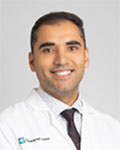
Mohammad Alkhoujah, MD
Medical School: University of Jordan Faculty of Medicine
Residency: Henry Ford Hospital
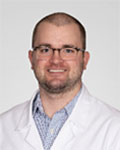
Nicholas Asher, MD
Medical School: Rush University Medical Center
Residency: Michigan Medicine
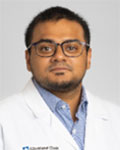
Umair Hamid, MD
Medical School: F.M.H. College of Medicine and Dentistry
Residency: UIC at Peoria/OSF St Francis
Year 1
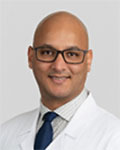
Yassine Mahjoubi, MD
Medical School: Faculty of Medicine of Tunis
Residency: Teaching Hospitals of Tunis & UHS Wilson Medical Center
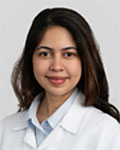
Syeda Owais, MD
Medical School: Foundation University Medical Center (FUMC)
Residency: University of Illinois Chicago
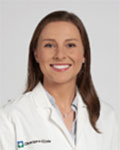
Hayley Williams, MD
Medical School: Texas Tech University
Residency: Cleveland Clinic
Alumni
2023 – 2025
Adam Delora, MD
Pain Medicine Fellowship
Rush University Medical Center
Davis Ewbank, DO
EEG Fellowship
Yale School of Medicine
2022 – 2024
Brittany Bolt, DO, PhD
Cleveland Clinic Staff
Cleveland Clinic Main Campus
Jay Liu, DO
Fellowship: Critical Care EEG
Yale
2021 – 2023
Sydney Moseley, MD
Cleveland Clinic Staff
Cleveland Clinic Main Campus
Lawrence Nolan, MD
Assistant Professor of Critical Care Medicine
Sentara Health (VA)
2020 – 2022
Adam Bates, MD
Assistant Professor of Medicine and Emergency Medicine
University Hospital (OH)
Catherine Hassett, DO
Cleveland Clinic Staff
Cleveland Clinic Main Campus
2019 – 2021
Madihah Hepburn, MD
Director Neuro ICU
Summa Health (Akron, OH)
Sunil Rathore, DO
Staff Intensivist
Assistant Professor of Neurology
University Hospital (OH)
2018 – 2020
Vikram Bhinder, MD
Medical Director
NSICU
ECU Health Medical Center (Greenville, NC)
Naresh Mullaguri, MD
Neurointensivist
Prisma Health Greenville Memorial Hospital (Greenville, SC)
2017 – 2019
Muhammad Zubairi, MD
Attending Physician
HCA FL Osceola Hospital
Anita Maraj, MD
Staff Intensivist
Capital Health (NJ)
Applications
Cleveland Clinic’s Neurocritical Care Fellowship uses the SF Match Central Application Service (CAS) for document collection. Applicants should submit all materials via CAS (individual application documents no longer need to be sent to our program address) beginning in October, two years prior to anticipated start (July 1). We will consider applications from residents/fellows eligible for licensure in Ohio, including those with H-1 or J-1 visas. Interviews for those selected take place January through May of the year prior to fellowship, with the match occurring in June.
The following materials will be requested of you, by CAS:
- CAS Distribution List (Online Submission).
- Completed CAS application form (On-line Submission).
- USMLE Scores or equivalent score reports.
- ECFMG Certificate (applicable to International Graduates).
- Three (3) letters of reference.
- Curriculum Vitae (CV).
The SF Match CAS instruction manual, available through your SF Match online profile, will provide additional information regarding application requirements and the submission of application documents. Each fellowship's application instructions and requirements differ.
The application deadline is February 15 of each year.
Please contact our fellowship coordinator for specific information:
Reneta (Beth) Cummings
Education Program Coordinator
9500 Euclid Ave.
Cleveland OH, 44195
cumminr@ccf.org
Living in Cleveland
Cleveland, a vibrant, mid-sized city located on Lake Erie, features a host of cultural attractions, recreational activities, major sporting events and an exploding culinary scene. Cleveland is home to the second largest theater district in the U.S., a park system featuring 23,700 acres in 18 reservations, and is the birthplace of rock ’n’ roll, home to the Rock ‘n’ Roll Hall of Fame and Museum. Cleveland Clinic is located near the University Circle area, which is the cultural epicenter of Cleveland. This area features Severance Hall and the world-renowned Cleveland Orchestra, the Cleveland Museum of Art, several other museums, and Case Western Reserve University. Downtown Cleveland, home to all major sports venues and an exploding culinary scene, is approximately two miles from Cleveland Clinic’s main campus.